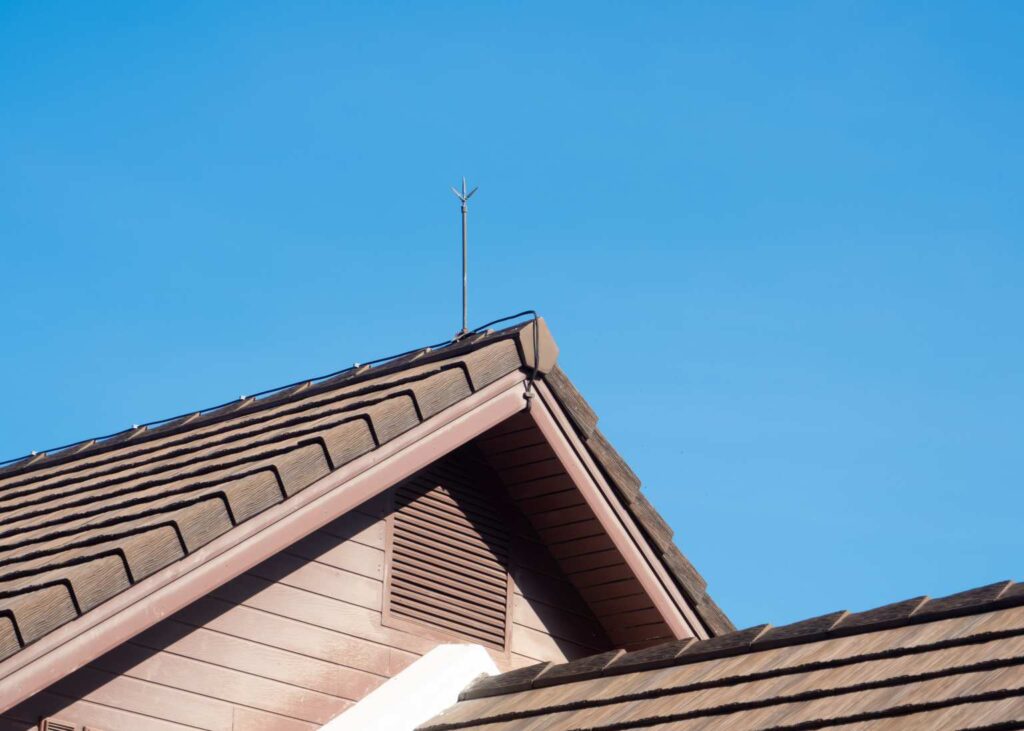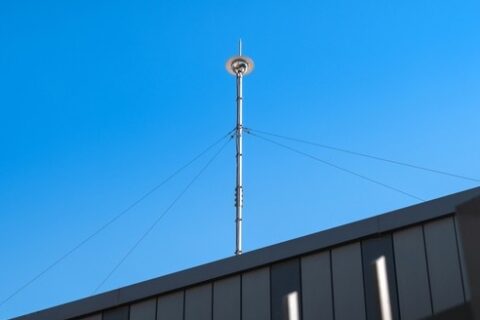Does Your House Need a Lightning Rod
With all the advancements in modern home construction, you might wonder if houses still need lightning rods to stay safe during thunderstorms. At Boston Lightning Rod Company, Inc., we are often asked by homeowners whether a lightning rod is a necessary addition to their home in Dedham, MA. The answer is yes, and this blog will offer a closer look at why.

A Brief History of Lightning Rods
You might think of lightning rods as relics of the past because they used to be very large, sometimes ornate structures that were very prominent in a home or building’s fade. However, lightning rods are still installed on modern homes. Today, they are built to integrate into modern architectural features, and they are much more compact in their modern design.
Lightning rods trace their history to Benjamin Franklin’s famous experiments with electricity, in which he proved that lightning was electricity and that it could be conducted away from buildings and other structures using metal. By the mid-18th century, lightning rods became much more common in homes and barns in America. They were initially simple structures, but they became more ornate and decorative, eventually serving as status symbols for wealthier homes. Today, lightning rods are recommended by the National Fire Protection Association, and they are common features on both homes and commercial buildings throughout the U.S., particularly in areas where thunderstorms and lightning strikes are frequent.
How Lightning Rods Work
It is a common belief that lightning rods attract or cause lightning strikes, but this is not the case. Instead, they intercept lightning strikes and divert them through a larger lightning protection system that moves the electrical current safely to the ground. Homes with lightning rods are about 80% less likely to sustain structural damage from a lightning strike.
Why Homes Still Need Lightning Rods Today
Although technology to predict and track the weather has improved substantially through the years, it is still impossible to predict exactly where and when lightning will strike. Therefore, homes and buildings are still vulnerable. In fact, our reliance on our residential electrical systems is greater than ever, and a single lightning strike could instantly and permanently damage countless electrical components throughout your home. Along with protecting your appliances and electrical devices, installing a lightning rod will also protect the structural integrity of your home and reduce the risk of a fire caused by a lightning strike.
Signs Your House May Need a Lightning Rod
Any home can benefit from having a lightning rod installed as part of a whole home lightning protection system. However, there are some risk factors that may make installation even more of a priority. These include the following:
- Your home has a complex or tall roof design.
- Your home is on a hill or elevated terrain.
- Your home is surrounded by tall trees.
- You have a large number of high-value electronics in the home or smart home technology integrated throughout the home.
- Your home is unoccupied for significant periods of time throughout the year.
- You are seeking discounts or credits on your homeowner’s insurance policy.
Modern Lightning Rod System Installation
Many homeowners are concerned about how a lightning rod will affect their curb appeal, but with modern materials and designs, lightning rods can seamlessly blend into the architecture of your home. Plus, having a lightning rod installed can actually increase the value of your home due to the safety benefits it offers. When you install a modern lightning rod, it is part of a larger system that includes conductors, grounding solutions, bonding, and surge suppression devices to offer more comprehensive lightning protection.
Contact Boston Lightning Rod Company, Inc. Today
At Boston Lightning Rod Company, Inc., we have been designing lightning protection systems for homes and businesses in Dedham, MA, for more than 150 years. Contact us today to schedule a quote and determine if you need a lightning rod to protect your house.


